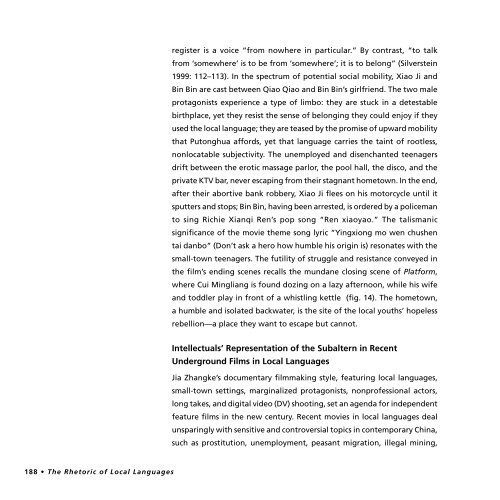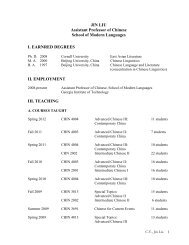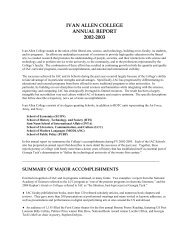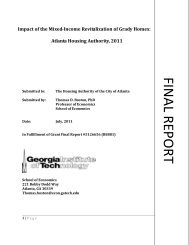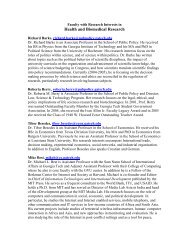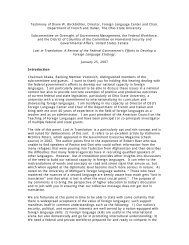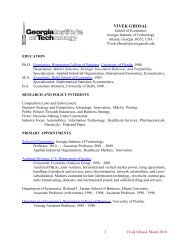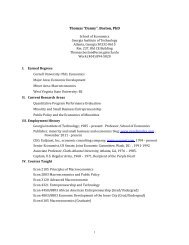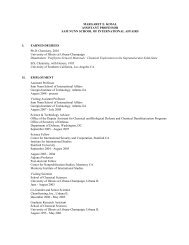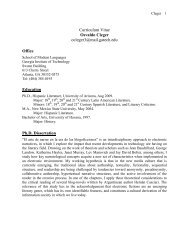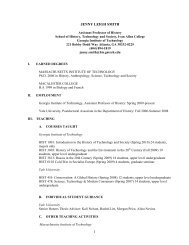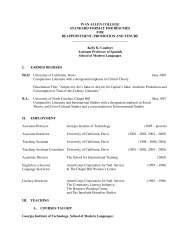Read this paper
Read this paper
Read this paper
Create successful ePaper yourself
Turn your PDF publications into a flip-book with our unique Google optimized e-Paper software.
egister is a voice “from nowhere in particular.” By contrast, “to talk<br />
from ‘somewhere’ is to be from ‘somewhere’; it is to belong” (Silverstein<br />
1999: 112–113). In the spectrum of potential social mobility, Xiao Ji and<br />
Bin Bin are cast between Qiao Qiao and Bin Bin’s girlfriend. The two male<br />
protagonists experience a type of limbo: they are stuck in a detestable<br />
birthplace, yet they resist the sense of belonging they could enjoy if they<br />
used the local language; they are teased by the promise of upward mobility<br />
that Putonghua affords, yet that language carries the taint of rootless,<br />
nonlocatable subjectivity. The unemployed and disenchanted teenagers<br />
drift between the erotic massage parlor, the pool hall, the disco, and the<br />
private KTV bar, never escaping from their stagnant hometown. In the end,<br />
after their abortive bank robbery, Xiao Ji flees on his motorcycle until it<br />
sputters and stops; Bin Bin, having been arrested, is ordered by a policeman<br />
to sing Richie Xianqi Ren’s pop song “Ren xiaoyao.” The talismanic<br />
significance of the movie theme song lyric “Yingxiong mo wen chushen<br />
tai danbo” (Don’t ask a hero how humble his origin is) resonates with the<br />
small-town teenagers. The futility of struggle and resistance conveyed in<br />
the film’s ending scenes recalls the mundane closing scene of Platform,<br />
where Cui Mingliang is found dozing on a lazy afternoon, while his wife<br />
and toddler play in front of a whistling kettle (fig. 14). The hometown,<br />
a humble and isolated backwater, is the site of the local youths’ hopeless<br />
rebellion—a place they want to escape but cannot.<br />
Intellectuals’ Representation of the Subaltern in Recent<br />
Underground Films in Local Languages<br />
Jia Zhangke’s documentary filmmaking style, featuring local languages,<br />
small-town settings, marginalized protagonists, nonprofessional actors,<br />
long takes, and digital video (DV) shooting, set an agenda for independent<br />
feature films in the new century. Recent movies in local languages deal<br />
unsparingly with sensitive and controversial topics in contemporary China,<br />
such as prostitution, unemployment, peasant migration, illegal mining,<br />
188 • The Rhetoric of Local Languages<br />
MCLC 18.2.indd 188<br />
12/20/06 2:01:39 PM


